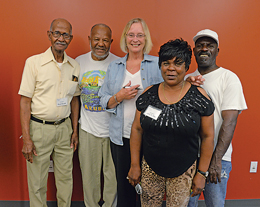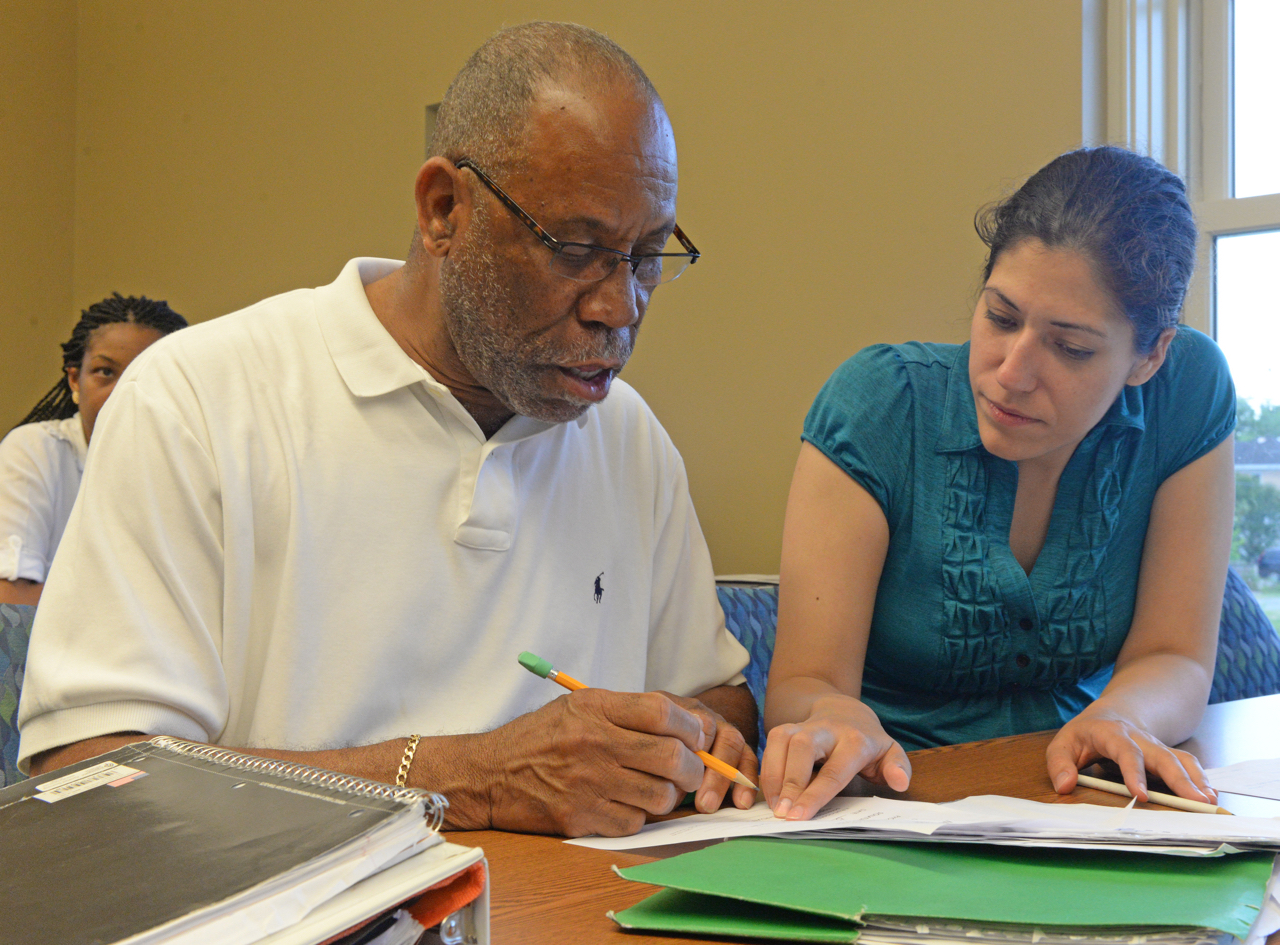Enrolled in special education classes throughout his formative years of schooling, as an adult, Richard made his way to The READ Center to improve his literacy skills.
A major challenge for the young man, according to teacher Kay McCall, was overcoming a severe vision problem. Thanks to a partnership with Pearle Vision in Richmond, Richard was fitted with glasses. Once he could see, Richard relaxed in class and began participating and collaborating with his classmates at The READ Center. “He was sure in the knowledge that he was not alone in his struggle to read. His natural gentle and happy nature came out as he encouraged his classmates and was encouraged by them,” McCall said.
The READ Center was founded as the Literacy Council of Metropolitan Richmond in 1982. For more than thirty years, the organization has helped adults with low-level reading develop basic reading and communication skills through classroom instruction and one-to-one tutoring.
“This year, more than one hundred and fifty students have registered for services,” said Karen La Forge, executive director of The READ Center. “With eight locations in Metro Richmond and Petersburg and twelve classes, The READ Center is small, but the need for literacy enhancement services in the region is great.”
While most adults in the United States learn to read in elementary school, a significant number of people across the country and in Richmond do not. In the U.S. today, there are 36 million adults reading at or below a third-grade level. In the Richmond Metro area, there are more than 60,000 adults over the age of eighteen who do not have basic literacy prose skills. This means these adults range from being unable to read and understand any written information in English to being able to locate easily identifiable information in short, commonplace text, but nothing more advanced.
One of the biggest challenges for adults with poor reading skills, explains La Forge, is the job hunt and subsequently, keeping employment. “They cannot fill out job applications, or if employed, complete job certification and safety tests,” La Forge said. In their daily lives, the negative effects are pervasive. “They can’t read and understand instructions on medicine bottles or medical directives. They cannot read a story to their child or help with homework.” Children of illiterate adults are often low-level readers themselves. Illiteracy locks adults and families into patterns where few achieve beyond subsistence levels.

With the help of The READ Center, Richard is working hard to break that cycle and write a story of success. When he came to the center, Richard had been mopping floors for eight years. His job coach realized his sunny disposition would be well-suited to delivering meals to the residents at a nursing home. To do this, Richard had to read the beverage orders and place the meal orders on the right trays. That’s where The READ Center came in.
Richard had also established some personal reading goals along the way.
“Richard got a smartphone and he wanted to learn how to text, so his tutors have been teaching him by swapping texts back and forth,” said McCall. “His phone is now chiming away with texts from friends, family, and co-workers. So here is a young man who now sees himself as a reader, capable of learning, and empowered to decide what he wants to read and learn. He is in relationships with a host of people through text now. His life is transformed. This is the work of The READ Center.”
Working with teachers and tutors, students are committed to improving their lives and the lives of their families. “They have goals of getting their GED or a job, of participating in their children’s education, or learning to write a check,” said La Forge. “Learning to read as an adult is hard work, but it is worth it in every sense.”
If you can read, you can help someone who can’t!
The READ Center provides twice weekly instruction led by READ teachers. The organization also trains and provides resources to volunteer tutors who work on a weekly basis with students. The training is a combination of classroom instruction and observation. The READ Center asks volunteers to commit to tutor for at least one session per week for at least a year.
“Our students are eager to learn and pursue personal goals, like how to take phone messages at work, get a driver’s license, read a newspaper, fill out job applications or use a computer. The atmosphere is warm and fun,” says Dana Souser, a tutor with The READ Center for two years. “I enjoy bringing creative approaches to tutoring, while respecting the unique life experience each student brings to the classroom. I have learned how much I have to contribute by simply being myself.”
Make a significant impact by helping adults learn to read. There are many opportunities to volunteer with The READ Center in locations throughout metro Richmond and Petersburg. Visit readcenter.org to register or call our office at 804-288-9930.




